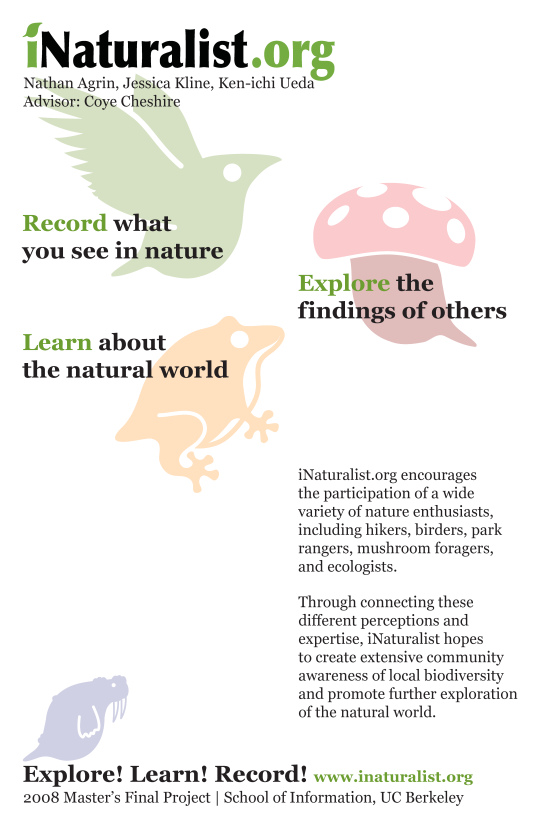iNaturalist.org
Biological information is complex, and the informational needs of amateur naturalists are largely unexplored. How do people name the organisms they see? How do we deal with species with 20 different names? How do we display the range of invasive species? How can we make data entry rewarding? What are the privacy concerns inherent in observational data and how should we address them?
iNaturalist.org is an online community for people interested in the natural world which attempts to address these questions. It serves three purposes: providing web-based biodiversity informatics software tools for recording information about nature, sharing that and other sources of natural history information, and facilitating communication between naturalists. iNaturalist.org defines 'naturalist' broadly as anyone with an interest in nature, including hikers, fishermen, ecologists, bird watchers, hunters, park rangers, beach combers, etc. By allowing people with many different levels of expertise and different perceptions of the natural world to record and share data about communal natural resources, iNaturalist.org aims to create a grassroots environmental monitoring network based on pervasive community awareness of local biodiversity.
The site will combine common web technologies such as blogs, digital photo sharing, and interactive maps with custom tools for searching, describing, and recording biodiversity data, allowing anyone with a stake in the environment to participate in the monitoring effort. Because iNaturalist is a grassroots effort, we expect participation in the data collection process will take place through recreational outdoor activities such as bird watching, fishing, or hiking. In addition to building tools which allow individuals to describe their observations of nature, iNaturalist will also promote these community activities by providing forums and community spaces for users to interact and meet other naturalists with similar interests. We hope this fostering of community further incentives users to contribute information and ultimately continue to explore and appreciate their local environments.










